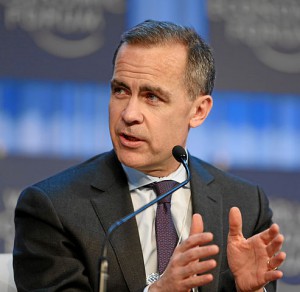Politics and monetary policy take a back seat
 The past two weeks have been characterized by the shifting sands of monetary policy. The FOMC has hiked for a third time despite no empirical evidence that such move is necessary.
The past two weeks have been characterized by the shifting sands of monetary policy. The FOMC has hiked for a third time despite no empirical evidence that such move is necessary.
Then Mario Draghi, the ECB President shifted from dove to hawk in the space of twenty-four hours. He has tempered his comments by making the distinction between a hike in interest rates and the removal of accommodative monetary policy.
He feels that a hike in rates would bring inequality to the region where there are economies where a rate hike would be wholly inappropriate and others (Germany) where it would make sense. He prefers to defer to the lowest common denominator and has been reprieved by a fall in inflation.
The removal or at least tapering of the Asset Purchase Scheme will bring tighter monetary supply without burdening borrowers.
This week’s data releases start with manufacturing indexes and culminate in the U.S. employment report. Manufacturing in the U.K., U.S., and Eurozone is performing adequately although there is some expectation that the PMI should be nearer that 58 than 56 in the U.S.
Non-Farm Payroll to return to trend?
 The U.S. employment report due this Friday will go some way to verifying the FOMC’s determination to hike rates last month. The May employment report was best described as “mixed” with hourly earnings weak as well as the headlining jobs data. Since the ONS is prone to revisions of up to 20% in the headline number a read nearer 170k could be seen.
The U.S. employment report due this Friday will go some way to verifying the FOMC’s determination to hike rates last month. The May employment report was best described as “mixed” with hourly earnings weak as well as the headlining jobs data. Since the ONS is prone to revisions of up to 20% in the headline number a read nearer 170k could be seen.
Analysts are looking for +185/+190 new jobs created in June. This is, coincidentally, close to the average of the past six month’s headline numbers.
The Eurozone employment report is due for release this morning. Unemployment has remained steady around 9.5% for a while now and is one reason why Mario Draghi is reluctant to hike rates.
The week will be shortened by tomorrow’s Independence Day celebrations in the U.S. so there may be some liquidity issues later in the day.
Other data releases this week will include Eurozone services data. This is not as important as the same data in the U.K. and U.S. given the higher proportion of GDP taken up by manufacturing. Services data is expected to be unchanged at 54.7, still showing healthy growth, and leading to an unchanged composite figure.
Rate decisions and speeches to deflect data
 This week there will be the standard number of speeches from Central Bankers justifying their policy stances. Bank of England Governor will speak at lunchtime today and provide more clarity on his apparent change of mind on interest rates. St. Louis Fed President James Bullard will continue his inflation rhetoric trying to get the markets to accept the threat of higher prices is driving his vote for further hikes.
This week there will be the standard number of speeches from Central Bankers justifying their policy stances. Bank of England Governor will speak at lunchtime today and provide more clarity on his apparent change of mind on interest rates. St. Louis Fed President James Bullard will continue his inflation rhetoric trying to get the markets to accept the threat of higher prices is driving his vote for further hikes.
There is a non-monetary policy ECB meeting at which the effect of Brexit will be near the top of the agenda and how the EU is going to cope with a U.K. sized hole in its finances.
Australia has a policy meeting of the RBA and it will be a close call but they should leave rates unchanged. Hikes are coming to the commodity currencies. Canada signalled an intention to hike soon last week and New Zealand while lagging Australia a little will want to ensure that its currency which has been strengthening is sufficient to ward off inflation.
















